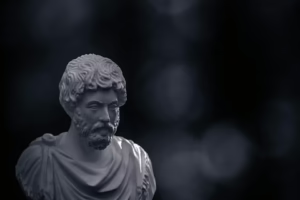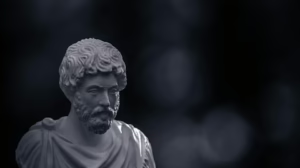Navigating Life’s Questions: How Philosophy Provides Meaning in Chaos
In an era characterized by rapid change and uncertainty, many find themselves grappling with fundamental questions about existence, purpose, and morality. Whether in moments of personal strife, political upheaval, or global crises, the ancient discipline of philosophy offers a structured approach to navigating these turbulent waters. By probing the nature of reality, ethics, and the human condition, philosophy provides not merely answers but frameworks for understanding our experiences. This article will explore how philosophy helps individuals find meaning amid chaos through its rich traditions, varying methodologies, and the potential for personal transformation.
Introduction to Philosophy as a Tool for Understanding
Philosophy, derived from the Greek word “philosophia,” meaning “love of wisdom,” is a discipline dedicated to exploring fundamental questions about life and our place within it. From existential inquiries about our very existence to ethical dilemmas that test our moral compasses, philosophy serves as both a mirror and a map. It reflects our internal struggles and provides a roadmap for navigating the complexities of life.
The Need for Meaning in a Chaotic World
Human beings have an inherent desire to find meaning, especially in times of chaos. Whether faced with personal tragedies, societal issues, or existential crises, we often look for frameworks that can guide us. Notably, the search for meaning has been a central theme in both philosophy and psychology, especially in the works of thinkers like Viktor Frankl and Soren Kierkegaard. Frankl, a Holocaust survivor, famously stated, “When we are no longer able to change a situation, we are challenged to change ourselves.” This idea resonates profoundly in a world rife with unpredictability.
Philosophical Frameworks for Understanding Chaos
Philosophy comprises multiple schools of thought, each offering unique lenses through which we can perceive the chaos of life:
-
Existentialism: This philosophical movement emphasizes individual freedom and responsibility. Thinkers like Jean-Paul Sartre and Simone de Beauvoir explore themes of absurdity and the search for meaning in a seemingly indifferent universe. Existentialism challenges individuals to create their own meaning, not by seeking external validation but through personal choice and authentic living.
-
Stoicism: Rooted in ancient Greek philosophy, Stoicism teaches the importance of accepting what we cannot control while taking responsibility for our responses. Stoic philosophers such as Marcus Aurelius and Epictetus emphasize resilience, inner peace, and the significance of virtue in facing life’s challenges. In turbulent times, Stoicism offers a guide to maintaining equanimity and purpose.
-
Utilitarianism: Developed by thinkers like Jeremy Bentham and John Stuart Mill, utilitarianism presents an ethical framework centered on maximizing happiness and minimizing suffering. In chaotic situations, utilitarianism encourages decision-making based on the greatest good for the greatest number, prompting individuals and leaders to weigh actions according to their societal impact.
-
Pragmatism: This American philosophical tradition, associated with figures like William James and John Dewey, emphasizes experiential learning and the practical consequences of ideas. In the face of uncertainty, pragmatism advocates for a flexible approach, suggesting that our beliefs must evolve based on new experiences and outcomes.
-
Feminist Philosophy: This branch critiques traditional philosophical paradigms that often ignore or marginalize women’s experiences. Thinkers like Simone de Beauvoir and Judith Butler explore the intersections of gender, identity, and power structures, offering insights into how societal chaos affects marginalized groups.
Personal Transformation Through Philosophy
While understanding chaos through philosophical frameworks is valuable, the inherent challenge lies in translating these insights into meaningful action. Here, we explore the transformative potential of philosophy on a personal level.
The Role of Reflection in Personal Growth
Philosophy encourages deep reflection and self-examination. Engaging with philosophical texts, questions, and discussions can inspire individuals to confront their beliefs, biases, and assumptions. This reflective process is essential for personal growth as it nurtures critical thinking and self-awareness.
For instance, practicing existentialist thought can empower individuals to assess their desires, values, and aspirations authentically. By recognizing the freedom inherent in choice, they may embark on paths that align more closely with their true selves, even in the face of external chaos.
Ethical Decision-Making Amid Uncertainty
The ethical dilemmas we face often arise in chaotic scenarios. Philosophy offers tools for ethical reasoning, helping individuals navigate complex moral landscapes. Engaging with utilitarianism, virtue ethics, and other ethical frameworks enables people to consider the ramifications of their choices on themselves and others.
A contemporary example can be found in the rise of ethical consumerism. Individuals are increasingly motivated to make purchasing decisions based on corporate ethics, environmental sustainability, and social justice. Philosophy can guide such considerations by fostering a broader understanding of responsibility and interdependence.
Community Engagement and Social Responsibility
Philosophy isn’t solely about individual introspection; it also emphasizes community and collective action. By critically analyzing societal structures, individuals can engage more effectively in civic life and advocate for justice and equality. Social philosophy, particularly contemporary thinkers in critical theory and feminist ethics, encourages discussions about inclusion, justice, and representation, prompting individuals to contribute positively to their communities.
Real-World Applications of Philosophical Thought
Philosophy is not confined to abstract thought; it applies to many real-world contexts, enriching various domains of life.
Education
In educational settings, philosophy fosters critical thinking skills essential for nurturing responsible citizenry. Curriculums incorporating philosophical inquiries encourage students to question assumptions, explore diverse viewpoints, and develop their ethical frameworks. Programs such as “Philosophy for Children” promote dialogue over debate, allowing young minds to grapple with life’s complexities.
Mental Health
Cognitive behavioral therapy (CBT) draws from Stoic principles in addressing negative thought patterns. By reframing thoughts and focusing on what can be controlled, individuals are empowered to cope with anxiety and depression, thus illustrating the practical utility of philosophical frameworks in mental health.
Political Discourse
In tumultuous political climates, philosophical discourse can bridge divides by encouraging empathetic dialogue. By stressing the importance of recognizing diverse perspectives, philosophy serves as a foundation for constructive political engagement. The works of philosophers like John Rawls, who advocates for justice as fairness, can resonate with contemporary social movements seeking equity.
Environmental Ethics
With increasing concerns about environmental degradation, philosophical inquiries into our relationship with nature have gained traction. Environmental philosophy challenges individuals and societies to reconsider their values, responsibilities, and actions towards the planet, advocating for sustainable practices as a moral imperative.
Conclusion: The Enduring Relevance of Philosophy
In a world marked by chaos, philosophy remains a crucial ally in navigating life’s questions. Its rich traditions provide insights into human existence, ethical dilemmas, and societal challenges. By engaging with philosophical ideas, individuals can cultivate resilience, develop ethical frameworks, and foster a sense of community in tumultuous times.
The call to philosophy is a call to introspection, dialogue, and action. As chaos unfolds around us, the wisdom of philosophical thought can anchor our lives, guiding us toward meaning, purpose, and a deeper understanding of our shared human experience.
In the words of philosopher Alain de Botton, “Philosophy is not just about abstract ideas; it is about understanding what makes for a good life.” In navigating life’s storms, philosophy offers not only a compass but also a way to cultivate meaning amid uncertainty.
Footnotes
Modern footnote sources that could be referenced throughout this article include works from contemporary philosophers, studies linking philosophy to psychology, and empirical research on the impact of philosophical discourse in education and community engagement.
This article is a foundational exploration, inviting readers to delve deeper into their philosophical inquiries. Each section and framework could be expanded into further discussions, reflecting the depth and versatility of philosophy in addressing life’s most pressing questions.

























Add Comment